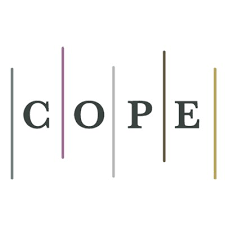Online Shopping Decisions Enhancement with Fuzzy Expert System
DOI:
https://doi.org/10.52547/ijimes.1.2.84DOR:
https://dorl.net/dor/20.1001.1.27832678.2021.1.2.7.9Keywords:
Customer decisions, Online- shopping, Expert systems, Fuzzy logicAbstract
Purpose Nowadays, due to the rapid development of the Internet and the rapid growth of web pages, many electronic websites are using product recommendation systems to guide users to the products that they need. Such systems usually provide a list of suggested items that the user may prefer. These systems are provided as a support tool to help users obtain information that best meets their needs. These systems can actually improve user decisions, resulting in increased sales and mutual customer satisfaction. The purpose of the paper is to improve user decisions in online shopping using fuzzy expert system.
Methodology: The statistical population of this study consists of 30 experts in the field of e-commerce who were selected by combining two methods of deliberate sampling and snowball sampling. To analyze the status of improvement of users' decisions, a fuzzy expert system was created using input variables business reputation status, environmental factors status in e-commerce, online store features; product specifications; user/customer characteristics.
Findings: The final results showed that there is no significant difference between the results of the created expert system and the mean of expert opinions.
Originality/Value: In this paper, a conceptual Model to improve user decisions in online shopping using a fuzzy expert system is designed.
Downloads
References
Terán, L., & Meier, A. (2010, August). A fuzzy recommender system for eElections. In International Conference on Electronic Government and the Information Systems Perspective (pp. 62-76). Springer, Berlin, Heidelberg. https://doi.org/10.1007/978-3-642-15172-9_6
Nory, F., & Ghahremani Nahr, J. (2019). Robust-possibilistic optimization method at design of a pharmaceutical supply chain network under uncertainty and discount on purchase the raw material. Journal of Modeling in Engineering, 17(58), 249-266. DOI: 10.22075/jme.2019.13798.1358
Ghahremani-Nahr, J., Nozari, H., & Bathaee, M. (2021). Robust Box Approach for Blood Supply Chain Network Design under Uncertainty: Hybrid Moth-Flame Optimization and Genetic Algorithm. International Journal of Innovation in Engineering, 1(2), 40-62. https://doi.org/10.52547/ijie.1.2.40
Chikhaoui, B., Chiazzaro, M., & Wang, S. (2011, March). An improved hybrid recommender system by combining predictions. In 2011 IEEE Workshops of International Conference on Advanced Information Networking and Applications (pp. 644-649). IEEE. DOI: 10.1109/WAINA.2011.12
Nahaei, V. S., & Bahrami, M. (2021). Uncertainty analysis of business components in Iran with fuzzy systems: By comparing hypermarkets and Net markets. International Journal of Innovation in Management, Economics and Social Sciences, 1(1), 45-55. https://doi.org/10.52547/ijimes.1.1.45
Schafer, B., Frankowski, D., Herlocker, J., & Sen, S. (2007). Collaborative Filtering Recommender Systems. The Adaptive Web, 4321, 291-324. https://doi.org/10.1007/978-3-540-72079-9_9
Prassas, G., Pramataris, K. C., Papaemmanouil, O., & Doukidis, G. J. (2001, June). A recommender system for online shopping based on past customer behaviour. In Proceedings of the 14th BLED Electronic Commerce Conference, BLED (Vol. 1, pp. 766-782).
Rana, C., & Jain, S. K. (2015). A study of the dynamic features of recommender systems. Artificial Intelligence Review, 43(1), 141-153.
Arora, M., Chopra, A. B., & Dixit, V. S. (2020). An Approach to secure collaborative recommender system using artificial intelligence, deep learning, and blockchain. In Intelligent communication, control and devices (pp. 483-495). Springer, Singapore. https://doi.org/10.1007/978-981-13-8618-3_51
Abbas, A. R., & Ashor, S. (2016). Design recommendation system in e-commerce site. Iraqi Journal of Science, 57(4), 2549-2556.
Esmaeili, L., Mardani, S., Golpayegani, S. A. H., & Madar, Z. Z. (2020). A novel tourism recommender system in the context of social commerce. Expert Systems with Applications, 149, 113301. https://doi.org/10.1016/j.eswa.2020.113301
Leo Kumar, S. P. (2019). Knowledge-based expert system in manufacturing planning: state-of-the-art review. International Journal of Production Research, 57(15-16), 4766-4790. https://doi.org/10.1080/00207543.2018.1424372
Castelli, M., Manzoni, L., Vanneschi, L., & Popovič, A. (2017). An expert system for extracting knowledge from customers’ reviews: The case of amazon. com, inc. Expert Systems with Applications, 84, 117-126. https://doi.org/10.1016/j.eswa.2017.05.008
Esheiba, L., Elgammal, A., & El-Sharkawi, M. E. (2019). Recommendation Framework for on-Demand Smart Product Customization. In ICEIS (2) (pp. 177-187).
Kumar, B., Sharma, N., & Sharma, S. (2020). Collaborative Topic Regression-Based Recommendation Systems: A Comparative Study. In Proceedings of ICRIC 2019 (pp. 723-737). Springer, Cham. https://doi.org/10.1007/978-3-030-29407-6_52
Cho, T. L., & Liao, H. L. (2019). Applying FAHP to Determine the Factors Influencing the Service Quality of Online Group Buying in Taiwan. Review of Integrative Business and Economics Research, 8, 253.
Guo, G., Zhang, J., Thalmann, D., & Yorke-Smith, N. (2014). Leveraging prior ratings for recommender systems in e-commerce. Electronic Commerce Research and Applications, 13(6), 440-455. https://doi.org/10.1016/j.elerap.2014.10.003
Jiang, Y., Shang, J., & Liu, Y. (2010). Maximizing customer satisfaction through an online recommendation system: A novel associative classification model. Decision Support Systems, 48(3), 470-479. https://doi.org/10.1016/j.dss.2009.06.006
Dabrowski, M., & Acton, T. (2013). The performance of recommender systems in online shopping: A user-centric study. Expert Systems with Applications, 40(14), 5551-5562. https://doi.org/10.1016/j.eswa.2013.04.022
Kim, J., Song, H. S., Kim, T., & Kim, H. (2005). Detecting the change of customer behavior based on decision tree analysis. Expert Systems, 22(4), 193-205. https://doi.org/10.1111/j.1468-0394.2005.00310.x
Nozari, H., Najafi, E., Fallah, M., & Hosseinzadeh Lotfi, F. (2019). Quantitative analysis of key performance indicators of green supply chain in FMCG industries using non-linear fuzzy method. Mathematics, 7(11), 1020. https://doi.org/10.3390/math7111020.
Lim, S., & Lee, B. (2015). Loyalty programs and dynamic consumer preference in online markets. Decision Support Systems, 78, 104-112. https://doi.org/10.1016/j.dss.2015.05.008
Devaraj, S., Fan, M., & Kohli, R. (2006). Examination of online channel preference: Using the structure-conduct-outcome framework. Decision Support Systems, 42(2), 1089-1103. https://doi.org/10.1016/j.dss.2005.09.004
Published
How to Cite
Issue
Section
License
Copyright (c) 2021 Proshat Ghaeini, Hamed Kazempour

This work is licensed under a Creative Commons Attribution 4.0 International License.












